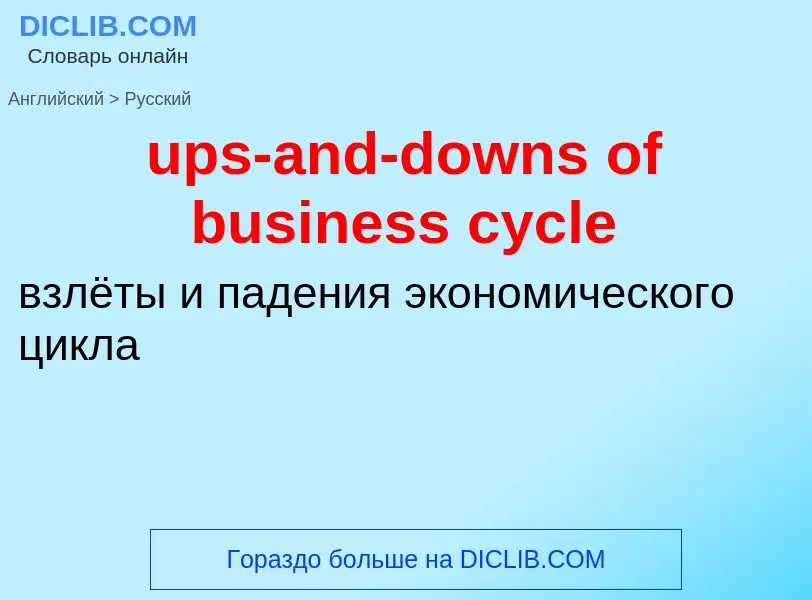Translation and analysis of words by ChatGPT artificial intelligence
On this page you can get a detailed analysis of a word or phrase, produced by the best artificial intelligence technology to date:
- how the word is used
- frequency of use
- it is used more often in oral or written speech
- word translation options
- usage examples (several phrases with translation)
- etymology
ups-and-downs of business cycle - translation to russian
Definition
Wikipedia
The Austrian business cycle theory (ABCT) is an economic theory developed by the Austrian School of economics about how business cycles occur. The theory views business cycles as the consequence of excessive growth in bank credit due to artificially low interest rates set by a central bank or fractional reserve banks. The Austrian business cycle theory originated in the work of Austrian School economists Ludwig von Mises and Friedrich Hayek. Hayek won the Nobel Prize in Economics in 1974 (shared with Gunnar Myrdal) in part for his work on this theory.
According to the theory, the business cycle unfolds in the following way: low interest rates tend to stimulate borrowing, which lead to an increase in capital spending funded by newly issued bank credit. Proponents hold that a credit-sourced boom results in widespread malinvestment. A correction or credit crunch, commonly called a "recession" or "bust", occurs when the credit creation has run its course. The money supply then contracts (or its growth slows), causing a curative recession and eventually allowing resources to be reallocated back towards their former uses.
The Austrian explanation of the business cycle differs significantly from the mainstream understanding of business cycles and is generally rejected by mainstream economists on both theoretical and empirical grounds. Austrian School theorists have continued to contest these conclusions.

